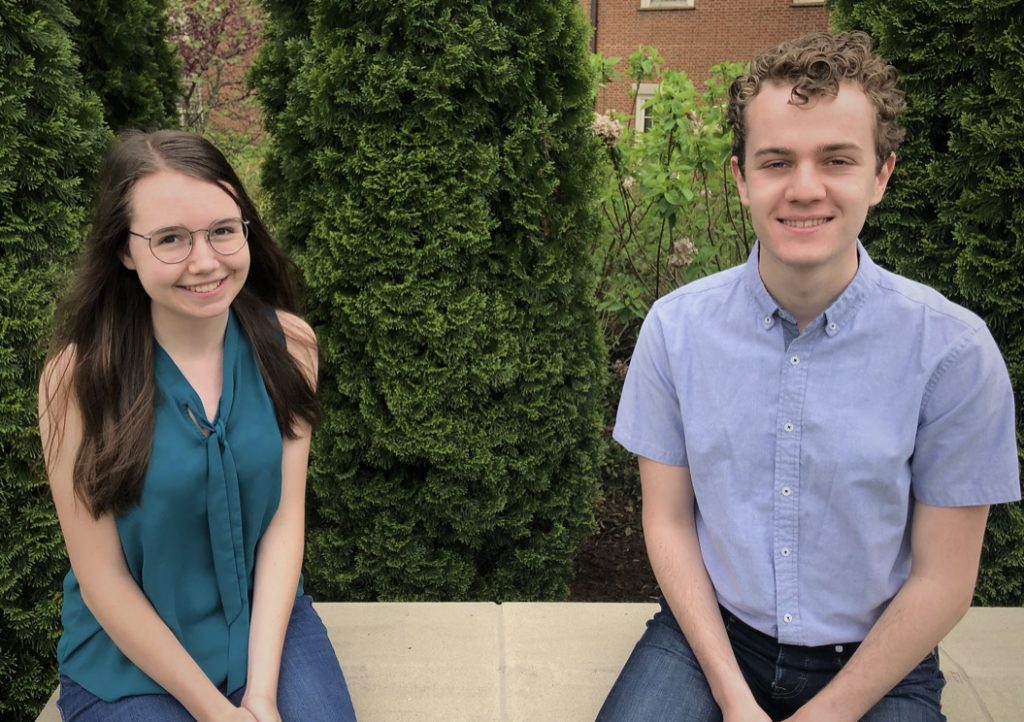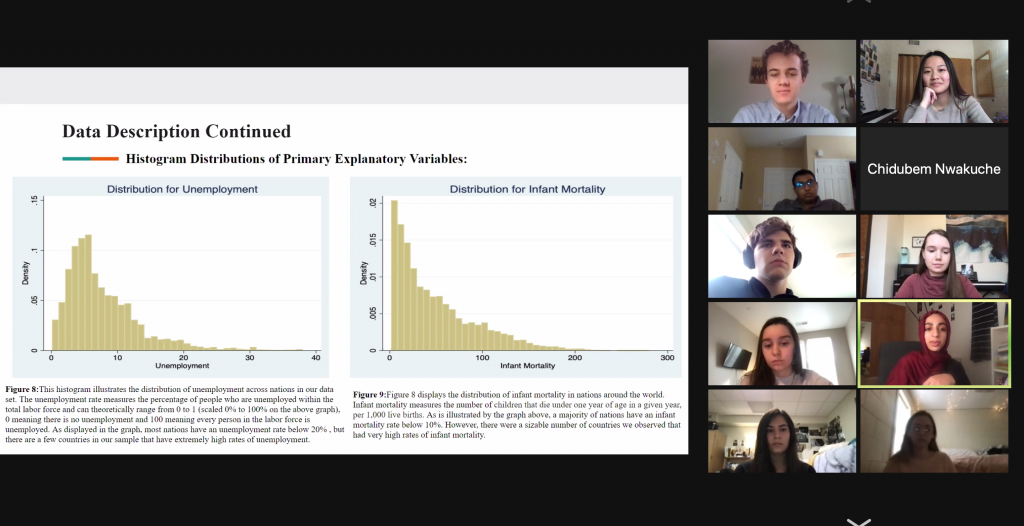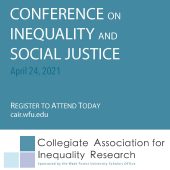Student-Led CAIR Organization to Host Intercollegiate Conference Addressing Inequity on April 24

The Conference on Inequality and Social Justice
9:30 a.m.
Saturday, April 24, 2021
By Bethany Leggett
Inequity permeates our society, from economic disparity to institutionalized racism, sexism, and homophobia. As second-year students Tal Feldman (‘23) and Ashley Peake (‘23) encountered such complex issues through their academic studies at Wake Forest, the two Stamps Scholars decided to form an initiative that would address inequity on a broad scale and support fellow students researching solutions. With the assistance of the Wake Forest Scholars Office, Peake and Feldman have founded the Collegiate Association for Inequality Research (CAIR).
“Tal and I spent the last year grappling with how we, as students and researchers, could work toward social change,” said Peake. “We come from opposite academic backgrounds — Tal, economics and political science; and myself, mathematics and computer science — but we found we both kept coming back to the idea that our studies could offer tools to address real social problems. We wanted to create a space to emphasize and support this kind of student work across all academic disciplines. That, in essence, is what CAIR has become.”
The student-led organization — whose leadership team also includes members Rebekah Lassiter (’24), Beth Seagroves (’23), and Dylan Tynes (‘23) — is committed to developing and sharing student research that focuses on issues related to inequality. To do that, CAIR will host its first major intercollegiate event, the Conference on Inequality and Social Justice, on April 24. Research institutions from across the world have signed on to take part in the virtual event.
It’s an incredible achievement for an organization in its inaugural year, especially during a disruptive pandemic. Jackie Sheridan, Director of the Scholars Program, said “Watching this group of students take a nascent idea and develop it to the level of a student-run symposium would be notable in any year, but Tal and Ashley’s efforts are all the more extraordinary in a time marked by COVID-19. They have demonstrated great ambition and perseverance in brainstorming, designing, and executing each step of their increasingly impressive plans. And now they’re bringing together student-scholars from across the country to analyze and propose solutions for some of the most complex challenges facing our world.”
We both kept coming back to the idea that our studies could offer tools to address real social problems. We wanted to create a space to emphasize and support this kind of student work across all academic disciplines. That, in essence, is what CAIR has become.”
Co-founder Ashley Peake on why she and Tal Feldman decided to form CAIR
In the fall, CAIR mentored six research groups through a pilot program. Topics covered a variety of interdisciplinary research addressing societal inequality, from “Data Mining of Racial and Social Rhetoric” to “Undergraduate Black Music Course Offerings: A Comparative Analysis.” The pilot group presented their research at the virtual CAIR Symposium in February.
After the success of the fall presentation group, the CAIR team decided to scale up the program and began planning the April intercollegiate conference. The response, they said, was overwhelmingly positive. CAIR received 115 project submissions that spanned a variety of disciplines, from anthropological studies to empirical ones, and came from institutions across the world. “We were overwhelmed with the number of submissions and spent quite a few late nights reviewing them,” said Feldman. The team narrowed the submissions down for a final roster of 35 oral presentations and 45 poster presentations. Topics will touch on inequity in a variety of fields, from biology and computer science to anthropology and economics. Forty-eight higher education institutions will be represented during the virtual event, including Columbia University, the University of Pennsylvania, Rice University, Duke University, Vanderbilt University, and New York University, including its campuses in Abu Dhabi and Shanghai.

“Our goal with this conference was to promote scholarly discourse around the most pressing issues of our time: inequities in education, employment, housing, and more,” Feldman said. “While we expected only a few submissions, undergrads from across the world have been emailing us, excited to share their research. These students are seeking an outlet for their work which challenges the status quo. I am so encouraged by the attention surrounding these issues. I hope this conference will be a place for all of us to learn and grow — as researchers and civic activists.”
Since the conference will be hosted virtually, parents, mentors, faculty, staff, and other students can attend, a boon during a time when COVID-19 restrictions have hampered the ability for research organizations and universities to host conferences and share work happening across disciplines.
Dean of the College Michele Gillespie said, “Tal Feldman and Ashley Peake’s intellectual leadership on behalf of social justice and structural inequality is remarkable. They have created a whole new student-based research community across the country, indeed the globe, that is generating new kinds of academic research dedicated to inequality in all its forms. Wake Forest prides itself in our engaged liberal arts education. Tal and Ashley are inviting their generation to take pro humanitate inquiry and analysis to a whole new transformational place.”
The Conference on Inequality and Social Justice will start at 9:30 a.m. on April 24. Registration is free and will remain open through the day of the event. To register, visit cair.wfu.edu/conference-registration.
“While we expected only a few submissions, undergrads from across the world have been emailing us, excited to share their research. These students are seeking an outlet for their work which challenges the status quo. I am so encouraged by the attention surrounding these issues. I hope this conference will be a place for all of us to learn and grow — as researchers and civic activists.”
Tal Feldman, co-founder of CAIR, on the positive response to the conference


